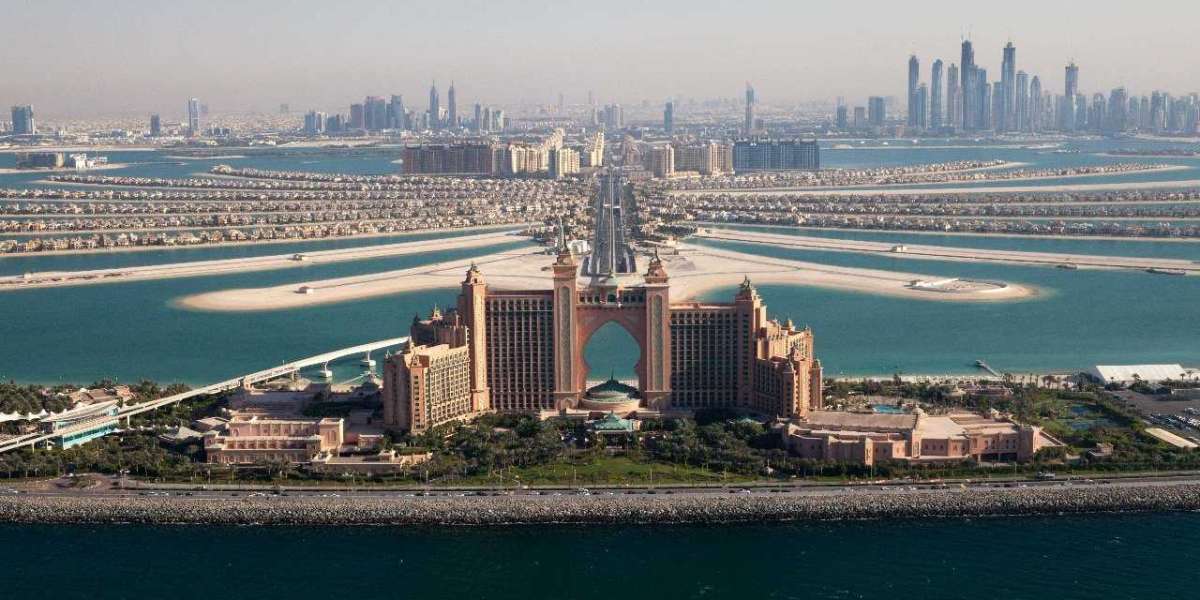Dubai, the epitome of modern luxury and architectural marvels, has consistently pushed the boundaries of what is possible. Among its numerous landmarks, the Palm Islands stand as a testament to the city's audacity and vision. While the Palm Jumeirah is already an icon, its sibling, Palm Jebel Ali Dubai, is emerging as the next jewel in Dubai's crown. This article delves into the awe-inspiring journey of Palm Jebel Ali, tracing its conception, development, and the impact it's set to make on Dubai's landscape.
The Genesis of Palm Jebel Ali
The ambitious idea of constructing artificial islands in the shape of palm trees off the coast of Dubai was conceptualized by Sheikh Mohammed bin Rashid Al Maktoum, the Vice President and Prime Minister of the UAE and the Ruler of Dubai. The success of Palm Jumeirah fueled the dream of expanding this groundbreaking project.
Palm Jebel Ali, the second palm-shaped island, was officially announced in 2002. The sheer audacity of the project captured the world's attention, as plans were unveiled for an even grander and more expansive palm island. The shape of a palm tree is more than just a design; it symbolizes growth, life, and abundance. This symbolism is apt for a city that has risen from the desert and transformed into a global hub of commerce and opulence.
Engineering Marvel: Design and Construction
The engineering prowess required to create an artificial island of such magnitude is staggering. Palm Jebel Ali extends over 50 square kilometers and, when completed, is expected to host a mix of residential, commercial, and leisure developments. The design is intricate, with the fronds and crescent carefully planned to optimize space and create an aesthetically pleasing layout.
The construction of Palm Jebel Ali involves intricate processes, including land reclamation and the formation of breakwaters. To ensure the stability and longevity of the island, millions of tons of rocks and sand were used to create a solid foundation. The technological innovation required for such a project is mind-boggling, involving dredgers, GPS systems, and cutting-edge construction techniques.
However, the project has not been without its challenges. The global economic downturn in 2008 had a significant impact on Dubai's real estate sector, leading to a slowdown in construction projects, including Palm Jebel Ali. The project was put on hold, and its future seemed uncertain. Yet, Dubai's resilience and determination prevailed, and the construction resumed in 2013.
The Grand Vision: What Sets Palm Jebel Ali Apart?
What sets Palm Jebel Ali apart from its predecessor, Palm Jumeirah, is not just its size but also the grand vision behind its development. The island is designed to be a self-sustaining community, with a carefully planned infrastructure that includes schools, hospitals, shopping malls, and recreational facilities. The idea is to create a holistic living experience, where residents have everything they need within the confines of this palm-shaped paradise.
The crescent of Palm Jebel Ali is envisaged to house a unique entertainment and themed destination, making it a magnet for tourists from around the world. The attention to detail in the planning and design stages reflects Dubai's commitment to offering unparalleled experiences.
Moreover, sustainability is at the core of Palm Jebel Ali's design. The island incorporates eco-friendly practices, from energy-efficient buildings to green spaces and water conservation initiatives. This aligns with Dubai's broader vision of becoming a sustainable city and reducing its carbon footprint.
Impact on Dubai's Economy and Tourism
The completion of Palm Jebel Ali is not just a matter of civic pride; it's a strategic move to boost Dubai's economy and tourism sector. The residential and commercial spaces on the island are expected to attract a diverse range of residents and businesses, contributing to the city's economic diversity.
Tourism, a cornerstone of Dubai's economy, is set to receive a significant boost with the completion of Palm Jebel Ali. The unique attractions and entertainment options on the crescent will make it a must-visit destination for tourists, further solidifying Dubai's position as a global tourist hub.














